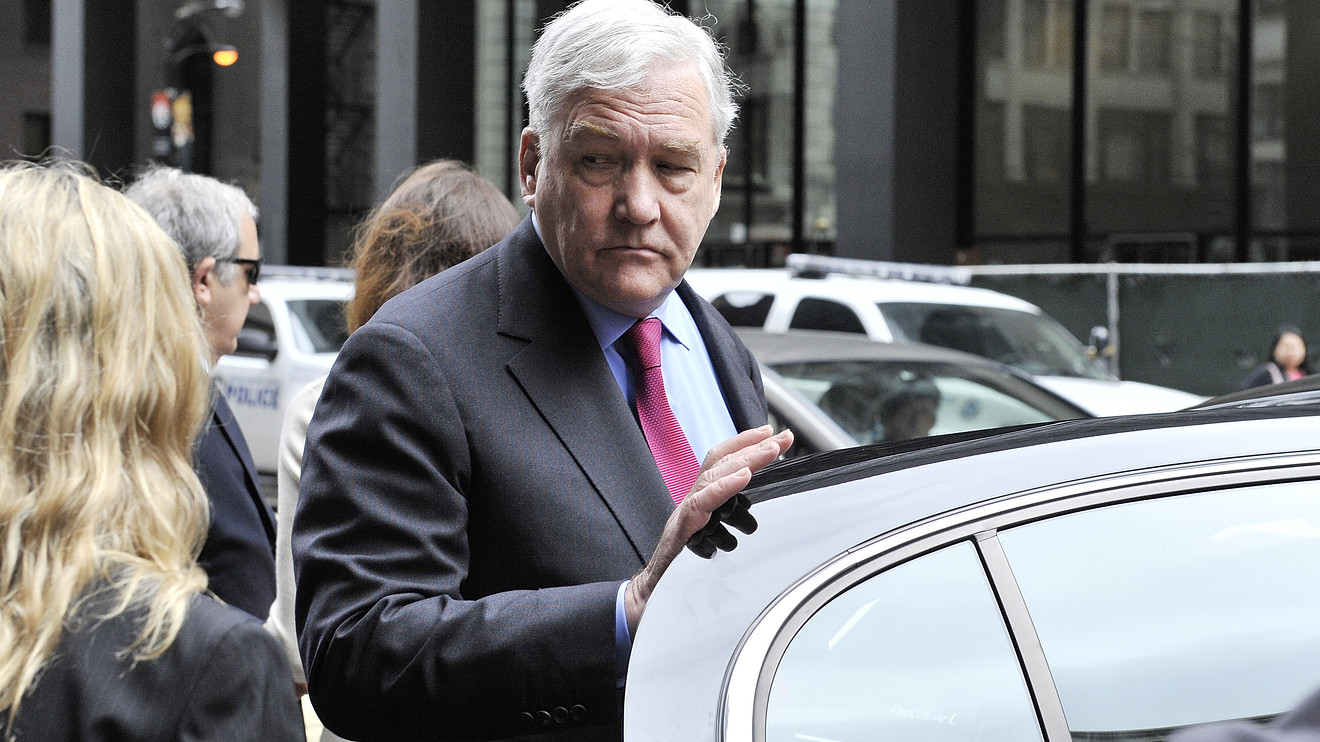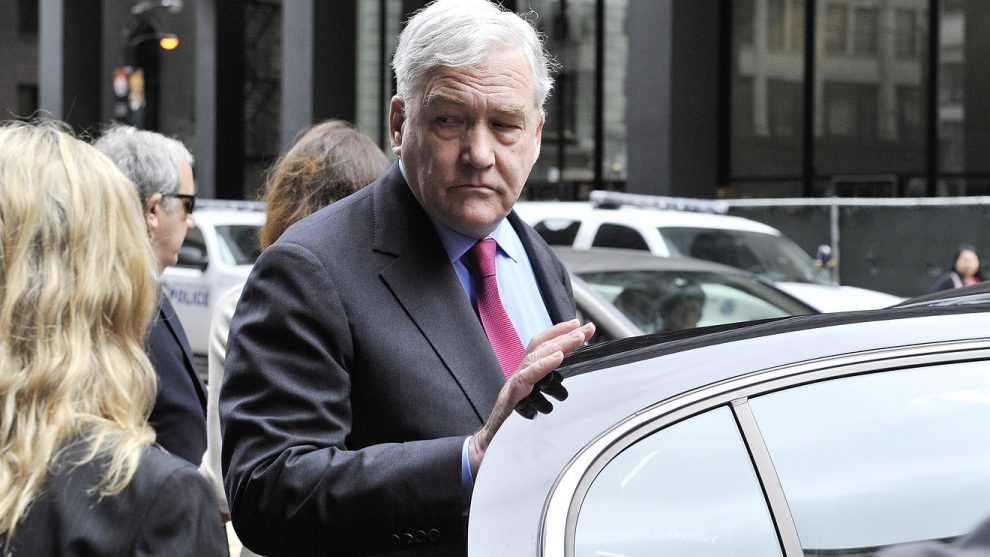
Former media mogul Conrad Black’s long-running legal saga has just seen another plot twist, with President Donald Trump granting a pardon to his biographer and onetime business associate.
The Canadian-born Black once faced 13 charges over the alleged misuse of company funds, but over the years only two charges had managed stick — one for obstruction of justice and another for wire fraud.
And those two are now wiped away.
Black’s Hollinger chain was once the world’s third-largest English-language newspaper company, operating more than 300 newspapers, including the Chicago Sun-Times, the National Post, the U.K.’s Daily Telegraph and Israel’s Jerusalem Post.
He was forced out of Hollinger in 2003, after an investment firm with a stake in the company questioned the fees and noncompetition payments made to him and other execs. An internal investigation then took place, and prosecutors drew much of their evidence from that probe, according to a 2007 Wall Street Journal story.
Legal experts in 2007 said that the obstruction-of-justice charge had been fairly clear-cut. The government had charged the former chairman of newspaper chain Hollinger International Inc. for removing 13 boxes with documents from his Toronto offices in 2005, and a security camera had caught Black and his driver transferring boxes from his office to the car.
The charge of mail fraud had been at the center of considerable legal back-and-forth. A jury had convicted Black in 2007 on three counts of mail fraud and the one obstruction count, acquitting him on nine other counts, including charges of wire fraud and racketeering. He and three other former Hollinger executives swindled the company’s shareholders out of $6.1 million, the jury found.
But then in 2010, the Supreme Court reduced the reach of a federal law that makes it a crime for a person to deprive others of “honest services.” An appeals court proceeded to reverse part of the British baron’s conviction, while upholding his conviction on one fraud count and the obstruction charge.
Defense lawyers had criticized the “honest services” law as a last resort of prosecutors in corruption cases, but watchdogs have considered it key to fighting white-collar and public fraud, noted a Wall Street Journal article in 2010.
Black, for his part, played down the remaining fraud charge in a column published late Wednesday.
“The alleged fraud was reception of $285,000 in my office in Toronto while I was in England, from our American company, which was approved by independent directors, referred to in public filings of the corporation, but which the company secretary had not completely formalized, in what the trial judge correctly regarded as a clerical error on the secretary’s part,” he wrote in Canada’s National Post. Black, who was released in 2012, also said he ended up serving three years and two weeks in U.S. federal prisons.
Black’s business dealings with the president included a 2001 deal with Trump to develop a skyscraper at the site of the old Chicago Sun-Times newspaper building. The conservative media figure also had a complimentary Trump biography published last year titled “Donald J. Trump: A President Like No Other.” In the book’s introduction, commentator Victor Davis Hanson wrote that Black “knows what it is like to be targeted by an overzealous prosecutor.”












